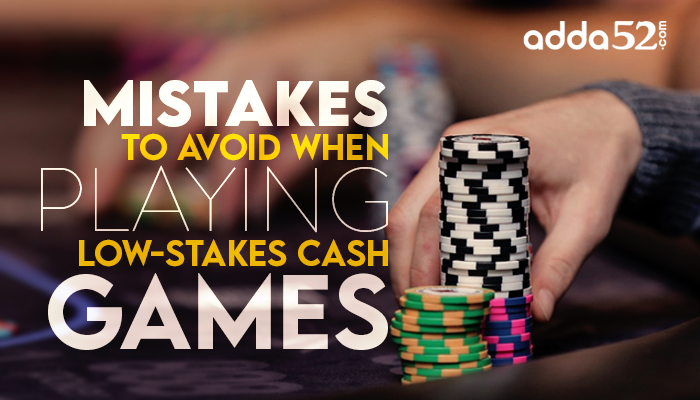Playing at small stakes cash tables is what every beginner in Poker does. The reason for choosing these stakes is because they don’t have to put in a lot of money at the beginning and they can move up the stakes gradually. These strategy games require a certain set of mistakes to avoid stopping losing money and make the winnings gradually. Every beginner or professional poker player must be aware of the basic poker rules. With that, how to crush these small stakes cash games also needs a strategy. In this article, you will learn how to play these low-stakes poker cash games where a lot of players struggle with. The reason why the players struggle with low-stakes games is because of the rake and also because they are not good at cash games yet. This comes from a general lack of understanding that poker is about your cards. A lot of people think that sitting at a table and playing with good cards will let them win. While they may win a small amount, the problem still is that the rake will eat them up. So before you are playing low-stakes poker there are a few things that you need to consider:
-
Who are you playing against?
While you can beat small stakes games for a small amount by playing strong hands, you will never become an excellent poker player by doing this.
-
What are the flaws in their game?
Read the mistakes and flaws of your opponents to use them to your advantage. Reading the tells and understanding the opponent’s style is one of the excellent player’s skills to possess.
-
How can you exploit them?
You must learn to exploit your opponent’s weakness if you want to become an excellent player.
There are a few general concepts that you need to take into account to understand in a few multiplayer games online.
- Play a few hands from the early position especially if you are playing at a nine-handed table or a ten-handed table. A lot of players get in trouble even at the high stakes hands where they will have a hand like 10 off-suit under the gun and raise it. Or they will have a queen jack off-suit, you are going to find that these hands are unplayable from early positions and they should be folded. The same thing goes for small pairs wherein a lot of players make the mistake of limping in with a flop, but this makes the entire limping range a marginal hand. Hence the observant opponents start raising as you move up or limp in that makes the game a little tough for you after the flop. Hence, you end up putting a lot of money in the pot.
- Play many hands from the late position, a lot of players get in the habit of playing the same basic hand range. A lot of players think that they can play all the big pairs. If you were playing 6% of hands in the early position then you should be playing 56% of hands in the late position. If the players and the blinds are somewhat tight you could go with even more hands. The reason for that is because you are going to be in a position and you will be able to exploit your opponents.
- Do not slow play unless your opponent can easily catch up to good, but still second best, hand. If you want to become an excellent poker player, you have to think about your opponents and figure out how to exploit their weaknesses.
Also, there are a few mistakes to avoid when playing a small stakes game:
- Betting way too large with strong hands. When you blast it with your strong hands, you fail to get action from the inferior hands.
- When you force your opponents to fold their junk, they are playing well, meaning they cannot make a mistake.
- You get an advantage when your opponent makes a mistake.
- Overplaying the marginal made hands. Leading (or raising) with marginal-made hands, even on draw-heavy boards is almost always a mistake.
- When your bet gets called, you could easily be crushed or against a draw that has plenty of equity. You also risk being raised.
- Especially when many draws arrive on the turn, check-call to induce bluffs.
- Betting results in your opponent folding almost all worse hands and calling almost all better hands. Jamming this turn forces the opponent to play well.
- Failing to think ahead wherein when you raise the limp a tiny amount, you have no fold equity, which you desperately need with your junk.
- When limp/re-raised, A-5 is an easy fold because it should be incredibly dominated and flops so poorly.
Also, there are a few mindset flaws that small-stakes players have.
- They do not think in terms of equity. For example, run out of the board simply does NOT matter. This means the order of their cards. Once you are all-in you will win as often as your equity dictates in the long run. What happens in any individual instance does not matter.
- They care a lot about winning and losing. Why do they care? The reason is very simple because they are gambling. They do not understand and accept how poker works.
- Bankroll – In addition to not understanding how poker works, they are also not properly bankrolled. They should stop playing for all their money.
- Equity – They must think in terms of equity. There should be plans for the future and short-term losses will become irrelevant.
Hence, don’t set yourself up to be dominated in pots where lots of chips are at risk. Play safe and crush the small stakes tables with these simple steps.
Happy Playing!


